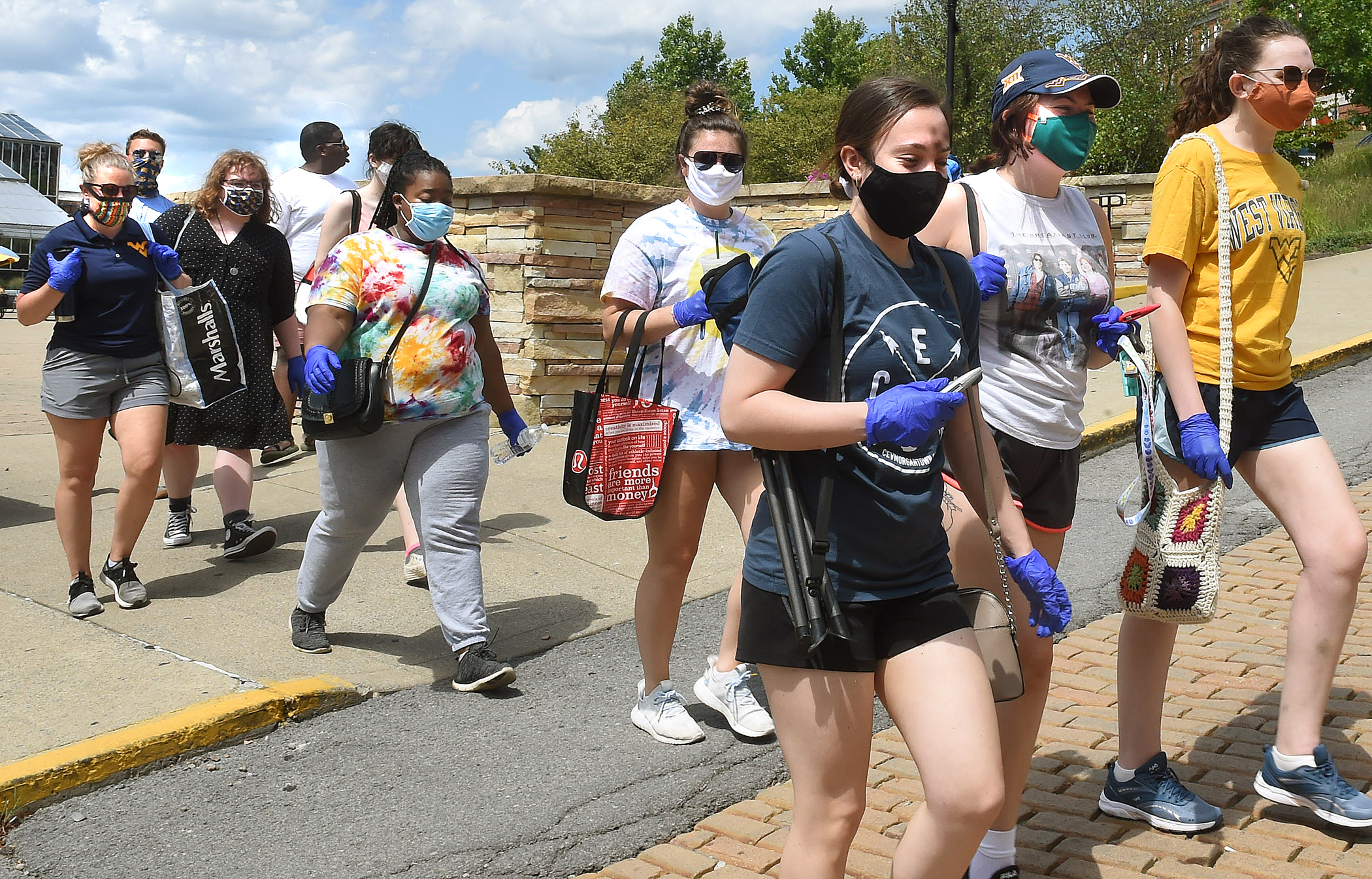Punishment for violating COVID safety rules could result in expulsion
As West Virginia University returns to Morgantown to begin classes on Aug. 26, university officials said students must follow COVID-19 safety rules or could face possible expulsion.
Six students are facing sanctions stemming from multiple parties held earlier this month off campus. They will report to the Office of Student Conduct and will receive sanctions under the Student Code of Conduct.
Initial failure to comply will result in probation and the requirement of an educational activity. The probation will be on the student’s disciplinary record, which is made available to future employers upon request. A second failure to comply is a violation of the probation. WVU said the student will then face a hearing that could include suspension or expulsion.
“We are not saying you can’t have a party, there are just different ways of doing it,” said Dean of Students Corey Farris.
Farris said the university became aware of the parties through social media, reports from police agencies and its own investigations.
Additionally, student organizations also failing to follow WVU’s health and safety policies as it relates to social gatherings, or the state and local public health orders, will face possible deferred suspension or loss of recognition by the university.
The university is planning an online rush for its sororities and fraternities. Before the pandemic, a large gathering was held in the Mountainlair followed by visits to the individual Greek organizations.
“Those things will have to be online,” Farris said.
As of Friday, 114 students in Morgantown out of a total of 16,940 tested, had the COVID-19 virus, the university said. Four faculty and staff had the virus, for an overall positivity rate of less than 1%.
Farris couldn’t say if COVID-19 positive numbers went up, the university would switch back to being totally online. The goal, he said, is to make it to Nov. 24, the last day of face-to-face instruction in Morgantown.
Other universities faced with outbreaks of the virus, however, have switched to online courses.
The University of North Carolina at Chapel Hill, for example, went to online classes for undergraduates after testing showed a rapid spread of the virus.
The University of Notre Dame, The Washington Post reported, said it had 58 confirmed cases when students returned in early August. Two off-campus parties were identified as sources of the virus.
Farris said it is important for students to avoid gatherings of more than 25 people in one place. Many of the students he talked with want to do the right thing so they can remain on campus.
“They are paying attention,” he said.
TWEET @41Suzanne




